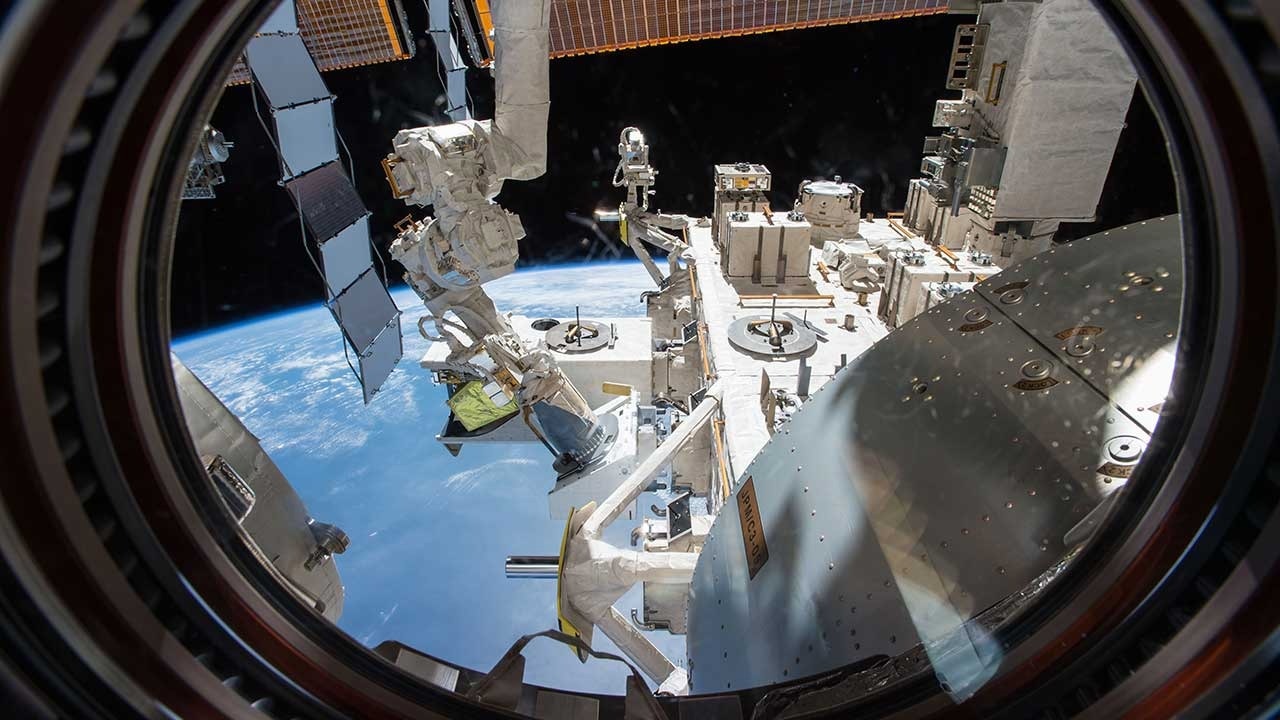Using satellite-based hyperspectral sensors that can capture images of Earth beyond the visible light we can see with our eyes, startup Orbital Sidekick provides valuable global monitoring services to customers around the world. So far, the company has launched five commercial satellites, two of which went up in March, and has plans to launch a sixth later this year. Co-founder and CEO Dan Katz attributes much of the company’s success to leveraging the International Space Station (ISS) National Laboratory to test its new sensor technology.
 View of the NREP through a window in the Japanese Experiment Module, nicknamed Kibō. Image Credit: NASA
View of the NREP through a window in the Japanese Experiment Module, nicknamed Kibō. Image Credit: NASA
Hyperspectral imaging can reveal the presence of specific chemicals and materials in an area, providing important insights into things like pipeline leaks, crop health, wildfire risk, and materials for mining. To test its new hyperspectral sensor technology, Orbital Sidekick launched its sensor to the ISS, where it was installed on the Nanoracks External Platform (NREP) mounted to the exterior of the orbiting laboratory.
An article in the latest issue of Upward, official magazine of the ISS National Lab, tells the story of Orbital Sidekick and what’s possible through research and technology development on the space station. Katz commented on the value of the company’s ISS research in Upward, saying, “It allowed us to focus our resources on what’s really driving value for our company, which is our intelligence platform, analytics engine, and product development for our end user—that’s what’s important for our commercialization effort. The mission was wildly successful and really set the table for everything we’re doing today with our commercial satellites.”
Following its ISS National Lab-sponsored investigation, Orbital Sidekick raised nearly $50 million in investment dollars and signed more than a dozen large energy companies for pipeline monitoring services. The company plans to expand its satellite constellation to include 14 satellites, allowing Orbital Sidekick to monitor millions of miles of pipeline around the globe on a weekly basis.
See how Orbital Sidekick’s space station research was a springboard for the company’s success in the Upward feature, “Sensors, Satellites, and Sidekicks.”